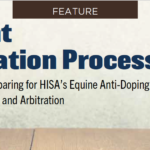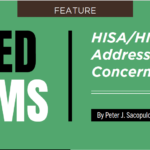Online reputations matter. Your patients choose you because they have seen or heard about how great your work is. As a surgeon and business person, you have taken steps to protect and promote your name in the aesthetic surgery community. While your professional life may be hit by the spot light, many physicians try to keep their personal lives private.
In the past, it was easier to keep your private life out of the public’s eye. The rise of the internet and exponential growth of social media has further blended personal with public. Approximately 78% of our fellow Americans use the internet[1]. The average American household spends as much time online as they do watching television. In fact, individuals under the age of 44 have been shown to spend more time online than watching television[2]. These statistics represent that more people are spending their time trolling the internet.
The Internet Makes It Easy to Tarnish a Reputation
Mentally unstable patients, ex-spouses and ex-employees seem to take a large punch when it comes to attacking aesthetic surgeon’s reputation. I have advised surgeons who were forced to engage in litigation with an ex-patient/spouse who created everything from negative ratings to websites attacking the surgeon’s reputation. The damage from this behavior can be significant. This is no surprise, as six out of ten Americans engage in online activities every day. [3]
This routine and habitual use of the internet has become engrained in Americans. While you may whole heartedly feel you provided excellent care, a jury of peers may not agree, all because of what they read on the internet. We should anticipate that some jurors will make use of the internet and social media during the litigation process. How or when during the litigation process someone involved in the case access the internet is difficult to predict. But it is a safe money bet that it will happen. To think that no juror will go online at any time during the litigation is naive to the point of ridiculous and dangerous.
Jury Instructions
Much has been made recently of the risk of jurors using social media. Dozens of cases around the country involving jurors use of social media during trials have been reported. As one author put it, social networking sites have “wreaked havoc” upon the jury system[4]. The problem is so pervasive in 2010 the United States Judicial Conference Committee on Court Administration and Court Management issued model jury instructions prohibiting to the use of social media and internet research[5]. In October, 2011 a survey of active and senior federal court judges found that 60% of them used the conference committee on Court of Administration and Case Managements jury instructions[6].
It is difficult to know how effective such jury instructions are. Many jurors, if not most jurors, presumably comply with their jury instructions. However, there is evidence that a small but measureable number will make covert use of the internet.
The medical community has been generating evidence of Internet Addiction Disorder (IAD) for some years now. Although not officially recognized by the American Psychiatric Association, many believe that IAD exists. A study conducted at Harvard University’s McLean Hospital found that between 5% and 10% of internet users suffered some form of internet dependency[7]. The European Journal of Radiology reports structural changes in the brains of adolescents with internet addictions[8]. Dr. Walther of Cornell University presented evidence to the American Psychological Association of internet dependence coupled with likely deceptive behavior in some individuals[9]. This juxtaposed with the overwhelming presence of social media and the internet use in daily life makes it hard to be surprised by juror misconduct.
Changing A Client’s Online Reputation
Some litigators are moving beyond recognition of the issue. They are proactively creating and polishing online reputations for potential advantage in litigation, in the event a juror strays from the courtroom into cyberspace.
Companies like Reputation Changer and Digital Whiteout work with their clients to change what people can read about them online. They don’t change the negative content, they try to bury it so the average juror would have a hard time finding it.
“A juror is the first person you are trying to influence. They are all sitting there searching things on their i-Phones as it is happening. You can’t really differentiate a juror from a normal person searching so you just take a blanket approach and essentially they will fall underneath it,” Digital Whiteout CEO Chris Cicero said[10].
Industry experts argue, once someone anticipates being sued or is served papers, it is best to get a jump start on what potential jurors, lawyers, and investigators will find when looking online. They caution the longer the negative information is visible online, the greater chance it has to spread virally by people reading it.
“What happens is, every time these listings get clicked on, they increase strength. They become more visible and again there is a greater chance they get picked up by other sources online and the more people that are going to read it. The more people that read it, it gives them the opportunity to get attached to the lawsuit. It can proliferate very quickly. It is something you want to take care, as soon as possible,” Reputation Changer General Manager Cliff Stein said[11].
One firm that specializes in assisting physicians with their online reputation is eMerit. Founded by Dr. Jeffery Segal, eMerit is focused on deputizing a critical mass of patients to post about their experiences with the doctor. eMerit provides an iPad which collects a critical mass of reviews to provide a representative picture of the doctor’s practice.
PR Department Armed and Waiting
Firms like Reputation Changer, Digital Whiteout and eMerit use a proactive approach to always have positive content in cyberspace about their clients. Some PR firms have new, positive content waiting in the hopper for when litigation looms. “When a plaintiff’s lawyer or juror searches a defendant doctor online, which prototypical review will help? – Dr.Smith got out of bed at 4 AM to save my mother’s life – or Dr. Smith was an uber-arrogant, money-grubbing, narcissist who dismissed every one of my concerns. You be the judge,” Segal said[12].
Michael J. Sacopulos is a partner with Sacopulos, Johnson & Sacopulos in Terre Haute, Indiana. He also serves as Legal Analyst for Dental Products Report, Plastic Surgery Practice and is National Counsel for Medical Justice Services, Inc. His practice focuses on assisting healthcare professionals develop strategies and techniques to avoid medical liability claims. Mr. Sacopulos returned to Indiana to practice law after attending Harvard College and the London School of Economics. He may be reached at Mike_Sacopulos@Sacopulos.com.
[1] Fox, Susannah and Jones, Sydney. “Generations Online in 2009” Pew Research Center Publications Web. 29 June 2012
[2] Morrissey, Brian. “Forrester: Time Spent on Internet Is Equal to TV.” Ad Week. Web. 29 July 2012. <http://www.adweek.com/news/technology/forrester-time-spent-internet-equal-tv-104018>
[3] Purcell, Kristen. “Search and email still top the list of most popular online activities” Pew Internet and American Life Project 2011 Web. 29 July 2012
[4] Schwartz, John. “As Jurors Turn to Web, Mistrials Are Popping Up” Web. 29 July 2012 <http://www.nytimes.com/2009/03/18/us/18juries.html?_r=1>
[5] United States. Committee on Court Administration and Case Management of the Judicial Conference. Washington: January 28, 2010
[6] Dunn, Meghan. “Jurors’ Use of Social Media During Trials and Deliberations” November 22, 2011 <http://www.fjc.gov/public/pdf.nsf/lookup/dunnjuror.pdf/$file/dunnjuror.pdf>
[7] Yasmin, Jeremy. “This is your Brain on Clicks.” Forbes 2005-09-05) Forbes
[8] European Journal of Radiology. “Gray matter abnormalities in Internet addiction: A voxel-based morphometry study.” October 2009 <http://www.ejradiology.com/article/s0720-048x(09)00589-0/abstract>
[9] Cornell University. “Communication Addiction Disorder: Concern over Media, Behavior and Effects” August, 1999
[10] Cicero, Chris. Personal Interview. 13 July 2012.
[11] Stein, Cliff. Personal Interview. 13 July 2012.
[12] Segal, Jeff. Personal Interview. 10 July 2012





